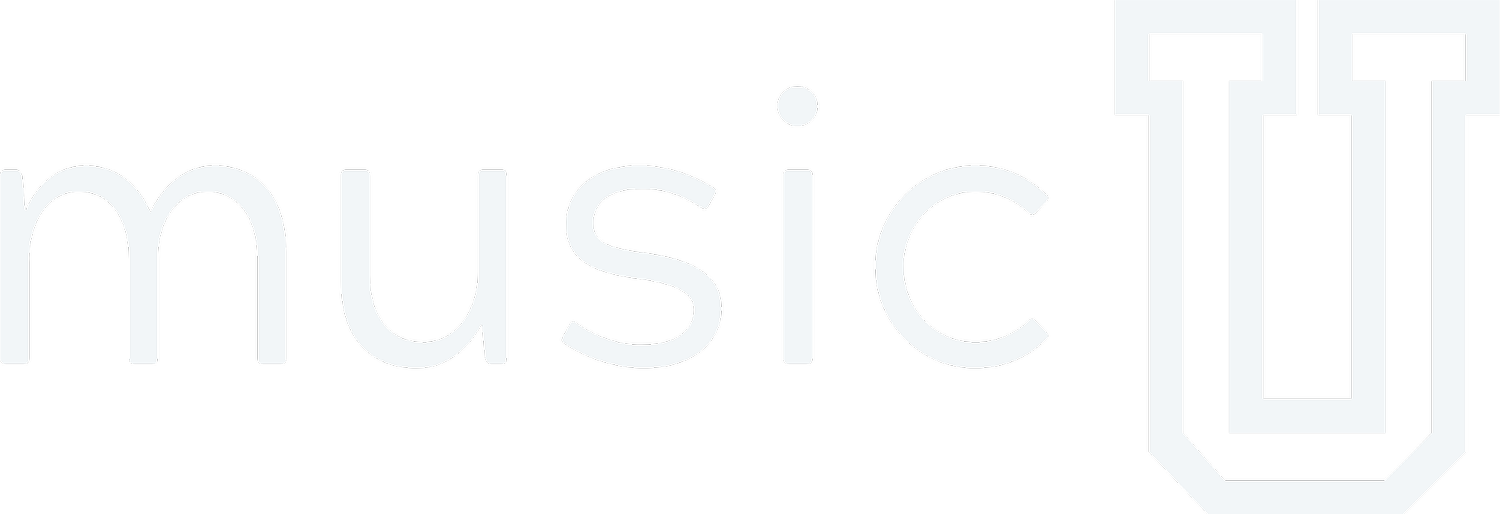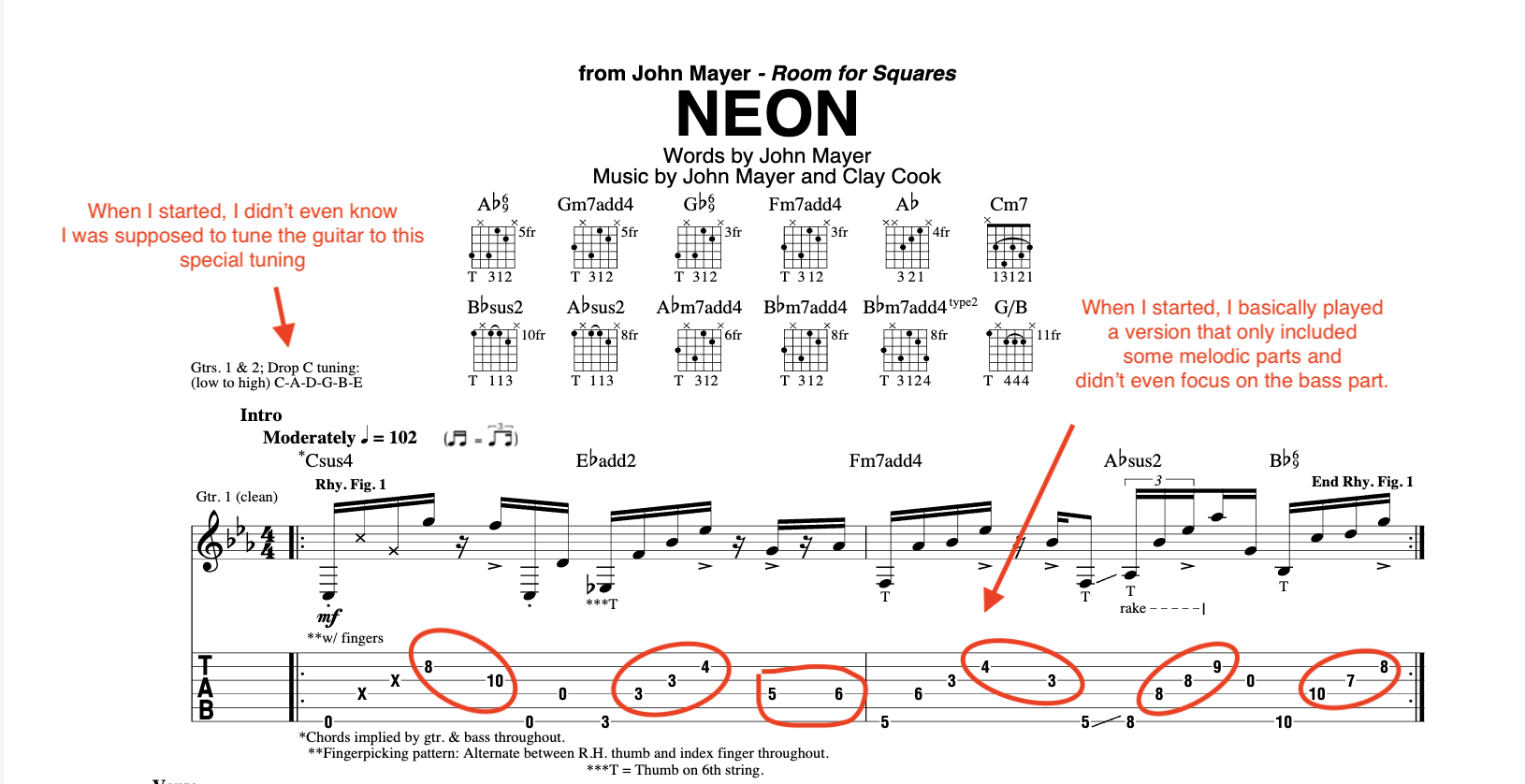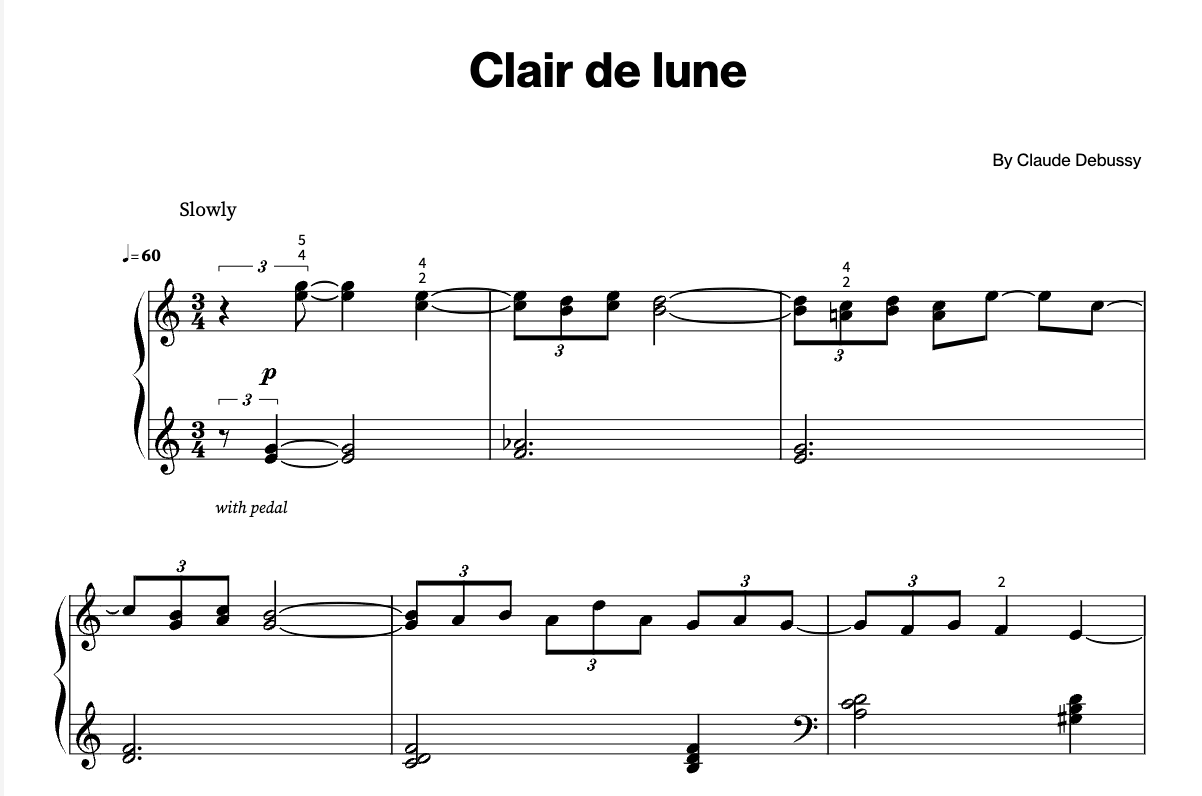Though some people love New Year's resolutions, and some think they may not be very effective, we at Music U think that any time is a great time to build good musical habits. The skills we are presenting can be picked up at any point in your musical journey, but since there is no time like the present, this month can be a great time to reset, reassess, and, most importantly, renew your love of music and the joy of playing an instrument! So, with that in mind, we’ve outlined below 5 great ways to achieve musical success throughout the year!
Reflect on the Past Year
Now is a great time to take stock and see how far you’ve come! In your mind, go back to last January and think about what challenges you were tackling and see if you’ve achieved your musical goals in the last 12 months. Some items to reflect could include:
Successful and/or challenging music performances
Completion of songs that you hadn’t learned yet
Songs or Compositions that you had written and/or recorded
Technical achievements with regard to scales, fingering exercises, tempo, rhythms
Successful Transcriptions
Camps and seminars
Listening to new music that inspired you to continue your growth and development
New experiences like being accepted into a school band or a music program at a higher education institution.
And more!
All of these could be considered examples of achievements and successes that have led you to continue growing on your musical skills. There are a lot of different roads one could take to find joy and success in music, so it’s also important to reflect on your year and see if the avenues you went down helped you grow or possibly didn’t do much to inspire you.
Some people love the feeling of live performance and the momentum that feeling can bring to their abilities, and others prefer the simplicity of playing new songs arranged for solo performances. Some love the process of adding technical abilities, and others simply find technical exercise as a means to perfecting that one melody or chord progression that they love.
As I mentioned in a previous post, I was inspired to learn “Neon” by John Mayer early on in my own musical journey, which required a plethora of techniques to achieve, even though the initial version that I learned would be considered a “simplified” version, the tune kept inspiring me continue working on it until I was able to perfect it. It’s hard to say how much, but I could make the case that I inadvertently learned a bunch of technical skills simply by trying to perfect that song and may not have learned these skills as quickly had I worked on them individually.
In summary, one of the biggest benefits of reflection is the critical approach of identifying which experiences were more inspiring than others. After you’ve identified these experiences, it can help you focus in on the categories of goals for the new year!
Establish Clear Musical Goals
So, now the fun part! What are your goals? Setting goals is important at any point on your musical journey, but now is a great time to focus in on which goals are most important to you.
As I mentioned above, there are a lot of ways to go down your musical path, so here is an example of a goal outline for the new year, but as this is more of a template, it is important to take this and make it your own. Personally, I like to set quarterly goals to allow for some flexibility on a monthly basis, so let’s start with that.
Quarterly Goals
January - March:
5 new techniques/skills/licks/solos etc…
1-2 “project” songs
1 performance
April - June:
3 new techniques/skills/licks/solos etc…
3 “project” songs
1 composition
July - September:
10 new techniques/skills/licks/solos etc…
1 “project” songs
1 performance
October - December:
1 new technique/skill/lick/solo etc…
5 “project” songs
1 composition
This is just a framework; depending on what you include will impact the difficulty of achieving these goals. For example, If I were to compare these two quarters, one is easier, and the other is more difficult:
January - March:
5 new techniques/skills/licks/solos etc…
Review C, G, D Major scales (two octaves)
Review Chord inversions with left hand: 1,3,5 | 3,5,1 | 5,1,3
Sightread simple solo arrangements of songs found in books and online
(Guitar) Review Minor pentatonic scales in all 5 CAGED positions
(Guitar) Learn a couple of simple blues licks
1-2 “project” songs
A 3-5 page song, depending on your difficulty level
1 performance
Sign up to play in a recital!
OR
January - March:
5 new techniques/skills/licks/solos etc…
Learn new scales like Harmonic Minor, Lydian b7, etc., in all keys two octaves and for guitar in all 5 CAGED positions in each key.
Work on difficult sight reading examples that, for piano, require a lot of position changes, or for guitar, involves a solo arrangement played fingerstyle
Learn a solo from a musical artist that you admire
Transcribe the solo if you had to learn it by ear.
Work on unique arpeggios like 1,2,5,6 or 1,4,5,b7, etc..
1-2 “project” songs
2 5-10 page songs that are either a solo instrumental arrangement or a transcription of a favorite song where you might also work on learning a recorded solo.
1 performance
Work on signing up for a school band that includes a winter performance, or even try to book a gig at a local venue with your solo work or with a band!
As you can see, the latter example could be considered much more ambitious than the previous one. But as mentioned above, the best option is to find a way to categorize goals that will work best for you. As an example of what to focus on that could bring you more joy, if I were to edit one of these example lists of goals, I would probably spend more time learning “project” songs and trying to have more live performances since I know that those things spark my inspiration more than the other goals. At the end of the day, what matters is that you find what goals are exciting for you and then put them on the calendar; as I always say: “nothing will get you motivated more than a deadline,” even if it’s one that you make for yourself!
Create a Practice Schedule
So, you want to learn “Clair de Lune” on the piano in 4 weeks or less, how do you do it? Well, the first step is to create a practice schedule that will help you get there. But actually, before you do that, consider this: In many cases, a song can be arranged and transcribed in its original form, simplified for an easier learning experience, or even arranged to be more complex than its original version. In the case of learning a song, before you begin, it’s best to set yourself up for success by selecting a version that is challenging but approachable for your skill level. The better the chart, the better the learning experience. Consider the two versions below and notice how the first one is a little more approachable than the second:
Easy Piano
Solo Piano
Next, once you have done that, start to add practice timeframes to a calendar. For example:
Sunday, Tuesday, Thursday, optional Friday/Saturday
Practice one line of music per day; at the end of the week, review all 3-4 lines of music
Each week, gradually add more lines until you have worked on the entire song.
Then, take a final week to perfect the whole song until it is “Performance Ready.”
Notice how I didn’t present specific amounts of time but more a goal related to phrases, sections, and milestones in the song. This matters because the amount of time it takes you to learn a section can depend on how difficult that section is and, overall, how difficult the song is.
The actual best way to practice anything musical is “SOS”:
Slowly
Often
And in Sections
Pro tip: if you need to learn a difficult song very quickly, it is even better to go through the whole song and identify the phrases that are most difficult to play. Only work on those first, then work on the moderately difficult sections and then the easy sections, then put it all together. This way, you don’t waste time working on a song that starts off easy and then gets hard, which could make achieving your deadline more difficult and stressful.
Explore New Musical Horizons
One more thing: working to achieve goals isn’t the only thing that makes your musical journey exciting. More often than not, it could be considered MORE important than any of the above to incorporate new “listening” experiences into your year. What does that mean? Well, practically speaking, it means setting aside time to actively listen to music that might be considered challenging to play, virtuosic, or melodic in a way that excites you.
Additionally, the best way to have these kinds of listening experiences is to see live music! Some examples include:
Go see a band that you love listening to
Go to a local symphonic performance
Go to a local operatic performance
Go to a local Jazz club and watch improvised performances
And the list goes on!
One of the best things I ever did as a musical student was to allow my “ear” to explore new sounds, and to this day, if I ever want to be inspired to continue my musical ability, the best way is for me to go to a show.
Musical inspiration isn’t always found on a page, and more often, it is found in the experiences that bring you pure joy.
Invest in Skill Development
Looking to take your musical journey to the next level? With Music U, you don’t have to go it alone! We have private lesson instructors who are excited and ready to help you along your own musical journey, no matter your age, or instrument of choice. At Music U, we believe that it’s about the journey, not the destination, so we would love to help you along your own musical journey.
Interested in private lessons? Sign up today!




